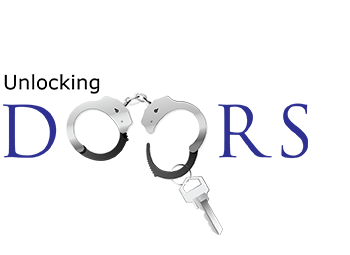Cole Fontenot ’22, Highland Capital Management Tower Scholar and recipient of the Hamon Internship, did not let COVID-19 hamper his summer internship experience. Performing research virtually, Cole tells us in the post below how helping a non-profit changed his view on the challenges that come when developing sound policy.
This summer I had the opportunity to intern for Unlocking DOORS, a non-profit in Dallas which focuses on helping those with criminal backgrounds re-enter general society. The nature of my internship consisted of being assigned a series of issues which I was to conduct research on and report back to the organization on the nature of the problems and the ways they can best counteract them. My area of research for this internship project was analyzing how the COVID-19 pandemic has affected citizens with criminal backgrounds readjust to life outside the prison system. Specific questions I looked to answer were if the pandemic impacted rates of alcohol and drug abuse in recently released prisoners, if increased isolation has contributed to the worsening of mental health among ex-convicts, and how the pandemic has impacted the mental health of former offenders.
My experience participating in this internship project with Unlocking DOORS has robust applications towards a career in the field of public policy. The subject matter I was studying forced me to analyze and synthesize information across a wide range of spectrums in order to answer questions without any obvious solutions. For example, the effects of the COVID-19 pandemic are still being studied across a myriad of socio-cultural factors. Therefore, there was very limited information available to analyze when it comes to a pandemic’s direct impacts on mental health and substance abuse in former offenders. However, by studying mental health and substance abuse in ex-convicts under normal circumstances, and the long-term effects of isolation and a lack of structure on the general population, I was able to link these categories together. Before this internship, I thought of policy making in an environment where the people forming it have the relevant information readily available to them. After this experience though, I now see that oftentimes policy is created during times of high uncertainty. Because of this uncertainty, policy makers have to come up with creative solutions to the questions at hand by linking past historical trends and finding patterns that are applicable to a novel problem. All of this being said, this internship project really opened up my eyes to what a dose of a career in public policy is like.
Overall, the policy recommendations I would provide can be described in the form of Maslow’s hierarchy of needs to conceptualize it simply. Basically, the pandemic has ravaged state and local economies and the things that individuals are worrying about have changed in the past couple of months. This is especially true since former offenders already have a significantly harder time of finding and keeping jobs all while dealing with past traumas associated with their experiences in prison. Therefore, organizations should pivot more so to investing in the basic needs of individuals, especially former offenders in the case of Unlocking DOORS. Although this was certainly already being done in their case, the importance of finding employment is diminished if the bigger risk now for former offenders is falling back into substance abuse or dealing with exacerbated mental health issues. Thus, the central theme of my policy recommendations is that resources are better off going to remote counseling and therapy programs, for example, than assisting in job searches. While the latter is of paramount importance, it cannot be achieved without the existence of the former. Former offenders are much more likely to find and keep a job if they feel a sense of security in their mental and physiological health, a thing many do not feel at this current time. This is what I mainly found in my research is that the pandemic has wiped out a dependable bedrock for many groups of people including former offenders. Reestablishing that bedrock is the foundation needed to meet the goal of decreased recidivism rates in our society.
